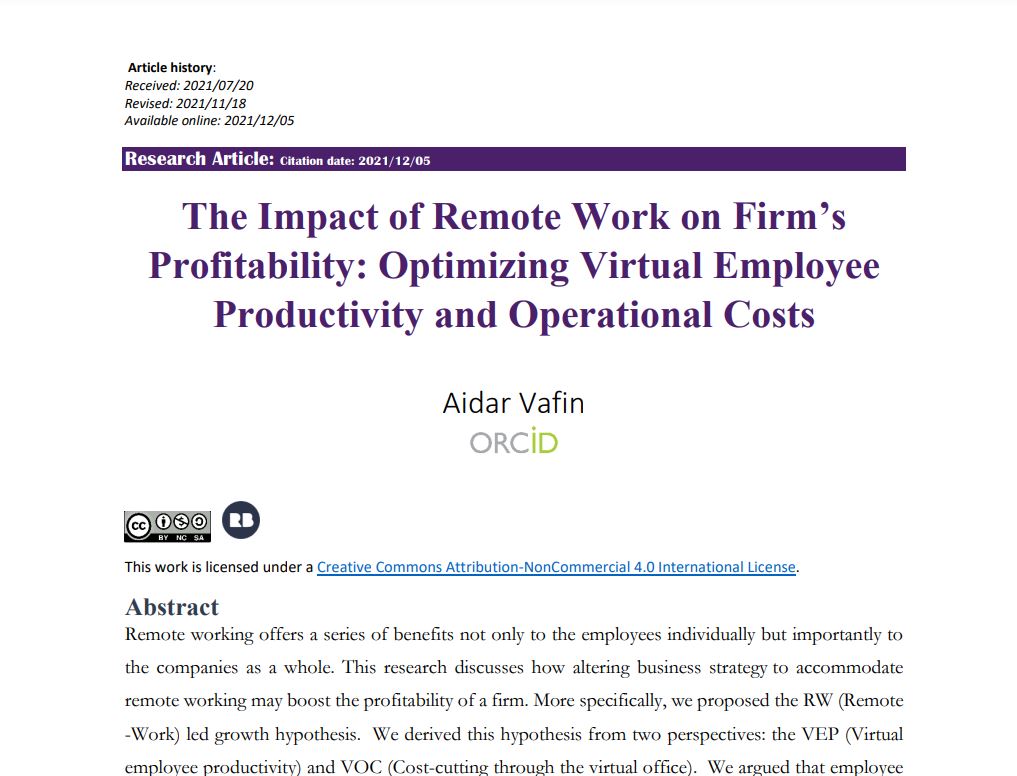The Impact of Remote Work on Firm’s Profitability: Optimizing Virtual Employee Productivity and Operational Costs
Keywords:
Cost-cutting, Employee productivity, Remote work, Virtual officeAbstract
Remote working offers a series of benefits not only to the employees individually but importantly to the companies as a whole. This research discusses how altering business strategy to accommodate remote working may boost the profitability of a firm. More specifically, we proposed the RW (Remote -Work) led growth hypothesis. We derived this hypothesis from two perspectives: the VEP (Virtual employee productivity) and VOC (Cost-cutting through the virtual office). We argued that employee productivity increases through factors such as work-life balance and employee engagement. Additionally, a firm can reduce operational expenses by adopting a work-from-home model. Although working remotely can increase the profitability of a firm, certain hidden expenses must be evaluated. This research also discusses these challenges that may cause the degrowth of a firm. We recommend that firms should resolve these issues to make a robust growth strategy that can achieve growth in the remote working model. The remote work trend is a recent phenomenon and there is not enough empirically workable dataset from different firms. Some post-pandemic surveys suggest that companies enjoyed profits to some extent but these surveys lack rigorous empirical models.

Downloads
Published
How to Cite
Issue
Section
License
Copyright (c) 2021 ResearchBerg

This work is licensed under a Creative Commons Attribution-NonCommercial-NoDerivatives 4.0 International License.




